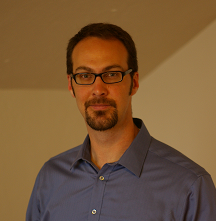Byron Smith, President
 Byron W. Smith, MSME, PE has a broad technical background combined with leadership experience. Mr. Smith studied engineering at the University of Texas at Austin, with an emphasis on mechatronics; and has worked with precision dynamic systems and large structures for over 15 years.
Byron W. Smith, MSME, PE has a broad technical background combined with leadership experience. Mr. Smith studied engineering at the University of Texas at Austin, with an emphasis on mechatronics; and has worked with precision dynamic systems and large structures for over 15 years.
Mr. Smith grew up with a curiosity about how things work, and has made a career of exploring how to make things work better. Management experience expanded this interest to include not just how things could perform better, but also the teams of people that develop them.
When not engaged in technical endeavors, he may often be found reading or exploring the outdoors by bicycle, boot or paddle.
Full resume available here.
Some favorite readings on the subject of our work in the world as engineers:
- The Prophet - Work - by Khalil Gibran (1923)
"Work is love made visible."
In this chapter from his masterpiece, Gibran gives us a poetic view of what work is and how we might relate to it. - Unto This Last - John Ruskin (1860)
"There is no wealth but life. Life, including all its powers of love, of joy, and of admiration."
A commentary on economics from the perspective that an abundance of well-being is a better definition of wealth than an abundance of money and possessions. - Laudato Si': On Care For Our Common Home - by Pope Francis (2015)
"Everyone's talents and involvement are needed to redress the damage caused by human abuse of God's creation"
Addressed to every person on the planet, this Encyclical provides a far-reaching commentary on the condition of our common home, considering both sociological and ecological aspects, and a discussion on how we might better care for it. - The Existential Pleasures of Engineering - by Samuel Florman (1976)
An interesting philosophical perspective on the nature of engineering and the role of the engineer in society. - Jevon's Paradox
"The Jevons paradox indicates that increased efficiency by itself may not reduce fuel use, and that sustainable energy policy must rely on other types of government interventions."
An example of the potential unintended consequences of technological development. As much engineering effort is devoted to maximizing efficiency, this economic theory is particularly relevant to the field. - The Secret of the Machines - by Rudyard Kipling (1911)
"But remember, please, the Law by which we live..."
A poem about modern machinery written at a time when the scale, capabilities, consequences and pace of technology were growing exponentially.
Selected publications:
